By Ed Leahy
Ireland travel to Glasgow knowing that a victory would put a six-point gap between themselves and Scotland in their attempt to qualify for EURO 2016.
Both sides have made encouraging starts in their quest to make it to the France-hosted tournament, the only real difference being Ireland’s invaluable away point to Germany, while Scotland came up just short against the world champions.
Scotland did grab an important point in Warsaw, which shows how little there is between the three teams fighting out for the second automatic place in Group D – assuming Germany quickly get their act together to break clear and win the group.
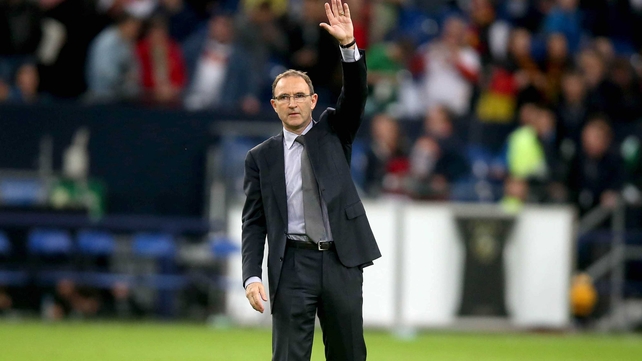
On paper, there is very little to separate Ireland and Scotland, and even managers Martin O’Neill and Gordon Strachan are cut from the same cloth, both renowned for getting the best of the players they have to work with.
Strachan is longer in the job but has arguably had the more difficult task, reuniting a Scotland side that has been in disarray for a decade or more.
One thing Irish football doesn’t have to worry about is the club versus country issue, which has always been a factor in Scotland. Many supporters are more concerned with the goings on at Parkhead, Ibrox, Pittodrie or Tynecastle than the national side’s fortunes at Hampden Park.
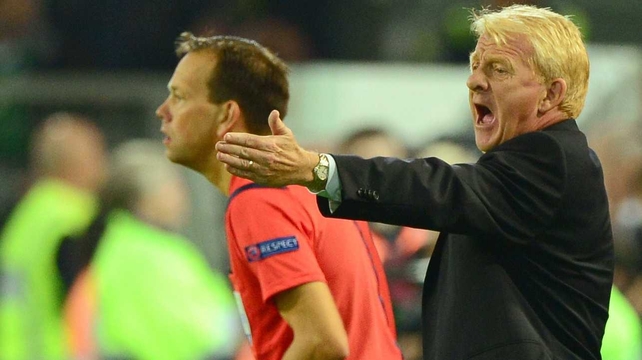
So Strachan’s rejuvenated Scotland squad has probably been helped by the fiasco that is Scottish league football at the moment, with Rangers, Hearts and Hibernian all playing outside the top tier of the league, leaving Celtic in no-man’s land looking longingly beyond Hadrian’s Wall, hoping for a shot at the English Premier League money-go-round.
Scotland’s recent push for independence, albeit a failed one, is another factor which is helping to gel the national team, with an entire nation discussing the merits of the country, resulting in huge swells of national pride, and the football team the ideal outlet for the confident country.
Scotland’s squad is similar to the Ireland set-up in that a large proportion of the players come from the English Championship, with only a handful doing it on the big stage of the Premier League.
And it is here that Strachan has proved his worth, building belief in the squad and bringing back players from the international wilderness.
In fairness, he couldn’t have fared much worse than the Craig Levein era where the infamous 4-6-0 formation was employed, unsuccessfully, of course.

But being the home side, there is pressure on the Scots to win this game, while a draw would be seen as a good result for the Irish who would finish the calendar year unbeaten in the group.
The similarities between the two sides are remarkable, with both squads equipped with game-changers, match-winners and, unfortunately, mistake-makers.
The Celtic Park clash will be akin to a mid-to-lower table Premier League clash and the game will surely be decided on individual incidents, whether a wonder-strike from outside the box, or a misplaced pass to gift a goal.
Both sides are capable of either scenario, but the side that possesses the most quality and cohesion is likely to take the spoils.
There is no disputing that Scotland’s defence is a Championship-standard one, and they looked very suspect in Warsaw, despite the excellent 2-2 result, which will have papered over a lot of the sloppy play in their own half.
The manager must take some of that responsibility as he has played very attacking formations in these games and it should prove the same at Celtic Park, with the added pressure of it being a must-win encounter for the hosts.
Strachan’s style will make for a very entertaining and open game of football, but you would really have to worry about a side with only one defensive midfielder protecting an already suspect back four – an early caution for Scott Brown, who is fond of a tackle, could result in a major rethink for the Scotland boss.
The Ireland manager will surely be targeting this area of the pitch and will probably employ an explosive counter-attacking style to take advantage of the space behind the Scotland midfield.
But first O’Neill will have to ensure that his own defence is watertight as Scotland’s attacking options are impressive, coming from either flank or straight through the middle of the park.
Steven Naismith will prove the main cause for concern, while flair players like Ikechi Anya and Shaun Maloney are capable of producing moments of magic to really test the Ireland goal.
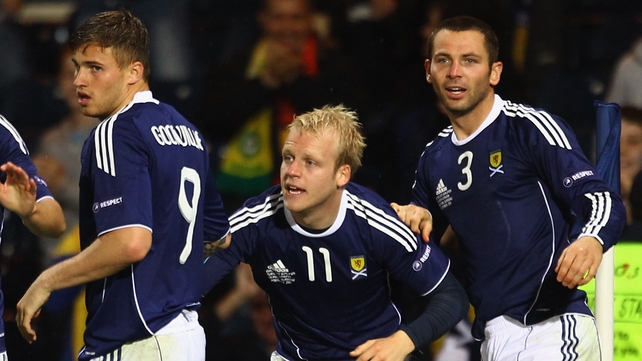
Steven Fletcher will add some physicality as well as providing an additional goal threat, while James Morrison should also prove a handful going forward, running at the Ireland defence, through the middle or down the right flank.
To counteract this threat, Ireland are going to have to produce a very disciplined performance at the back, and with Marc Wilson, Glenn Whelan and James McCarthy ruled out, the manager will need some big performances from Gelsenkirchen hero John O’Shea, fellow centre-half Richard Keogh, as well as midfielders Darron Gibson and Stephen Quinn who should be named in midfield.
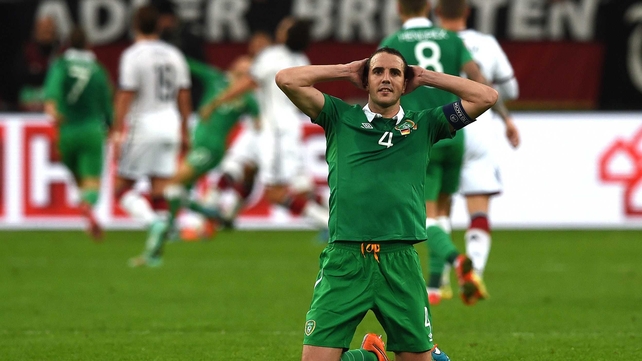
O’Neill is perfectly adept at setting up his team to thwart this Scotland threat and, from there, Ireland’s attacking players should enjoy plenty of success on the counterattack.
With David Forde remaining in goal, the back four is likely to see Seamus Coleman and Stephen Ward fill the full-back berths with Richard Keogh filling in for Wilson alongside O’Shea in the centre of the defence.
Not the most inspiring back four to ever wear the green, which is why O’Neill’s midfield selection is crucial in their quest to keep a clean sheet in Glasgow.
The Ireland boss employed Aiden McGeady in the midfield three against Germany but it really didn’t work as the Everton man was found wanting defensively and then too far from Robbie Keane to make an impression going forward.

Jeff Hendrick would appear to be the obvious choice to sit in alongside Quinn and Gibson as the Derby midfielder possesses two great feet and can quickly turn defence into attack, as well as linking up with the skipper Keane, who will really fancy his chances against the Scotland back four.
But even that midfield trio will still worry O’Neill as he has admitted that Gibson hasn’t had enough first-team football, while Quinn and Hendrick remain unproven at this level.
For this reason, James McClean could find himself starting from the bench in order to allow Jon Walters to add some bite to the midfield with his renowned work-rate coming in from the right side of the pitch.
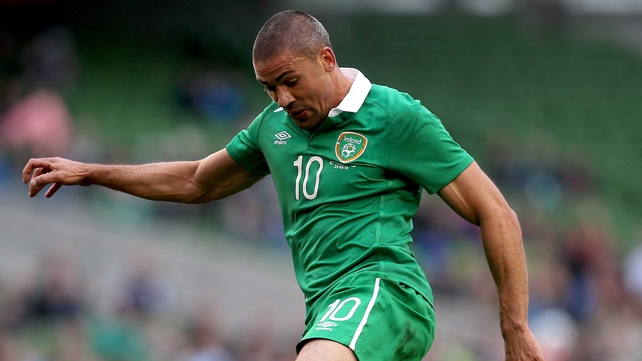
While Strachan is receiving many plaudits for the work he has done with the national side, his counterpart O’Neill has arguably done a better job with the Irish, who lost their way under previous manager Giovanni Trapattoni.
O’Neill is a year in the job but had to wait until the Georgia clash to experience his first competitive game and while his side have proved lucky in the group so far with a last-minute winner in Georgia and the injury-time equaliser in Germany, that luck was earned with hard work and a renewed belief that O’Neill and his backroom team have been slowly instilling within the squad.
You only have to watch the last 20 minutes of the Germany game to see O’Neill’s influence within the team, as the Ireland XI never stopped working or believing until they snatched a point in Gelsenkirchen with virtually the last kick of the game.
And while no one, apart from John Delaney, would expect the Scottish FA to do Ireland any favours ahead of this Celtic derby, manager Strachan must have serious questions over their choice of venue for the visit of the Boys in Green.
The Scotland boss was playing down the significance of the Irish link to Celtic Park, claiming it would be Scotland Park on the night, but there is no point trying to mask the Irish influence at the East End venue and the surrounding Barrowlands area, which will most likely be a sea of green in the hours building up to the big game.
The Irish fans will perhaps be outnumbered once inside the stadium, but it will feel like a home tie in the build-up and would have been a very different scenario had the match been staged at Ibrox. It all comes down to ticket sales, but in a match so evenly balanced, it is these small details that can influence the result.
So an open, exciting and entertaining spectacle is almost certainly guaranteed at Celtic Park, however, the result is likely to remain in the balance until the latter stages.
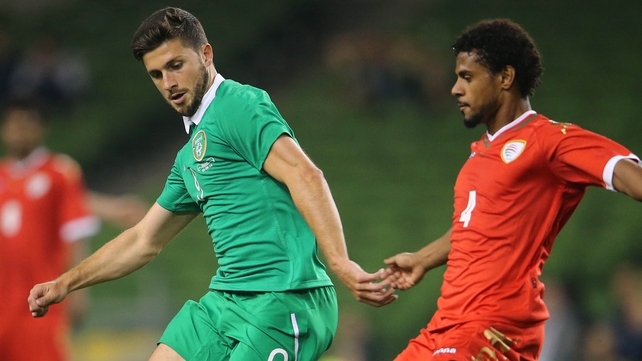
And perhaps it is in these final minutes that Ireland can make their strength in depth count to their advantage as O’Neill can call on a much stronger bench, with several attacking options available should a late goal be required.
Shane Long’s Ireland career has yet to really get going but the Southampton man has shown some form for his high-flying club, grabbing a brace last weekend.
And while the Tipperary man is unlikely to start this all-important European encounter, he may well have the final say at Paradise.
Verdict: Ireland

